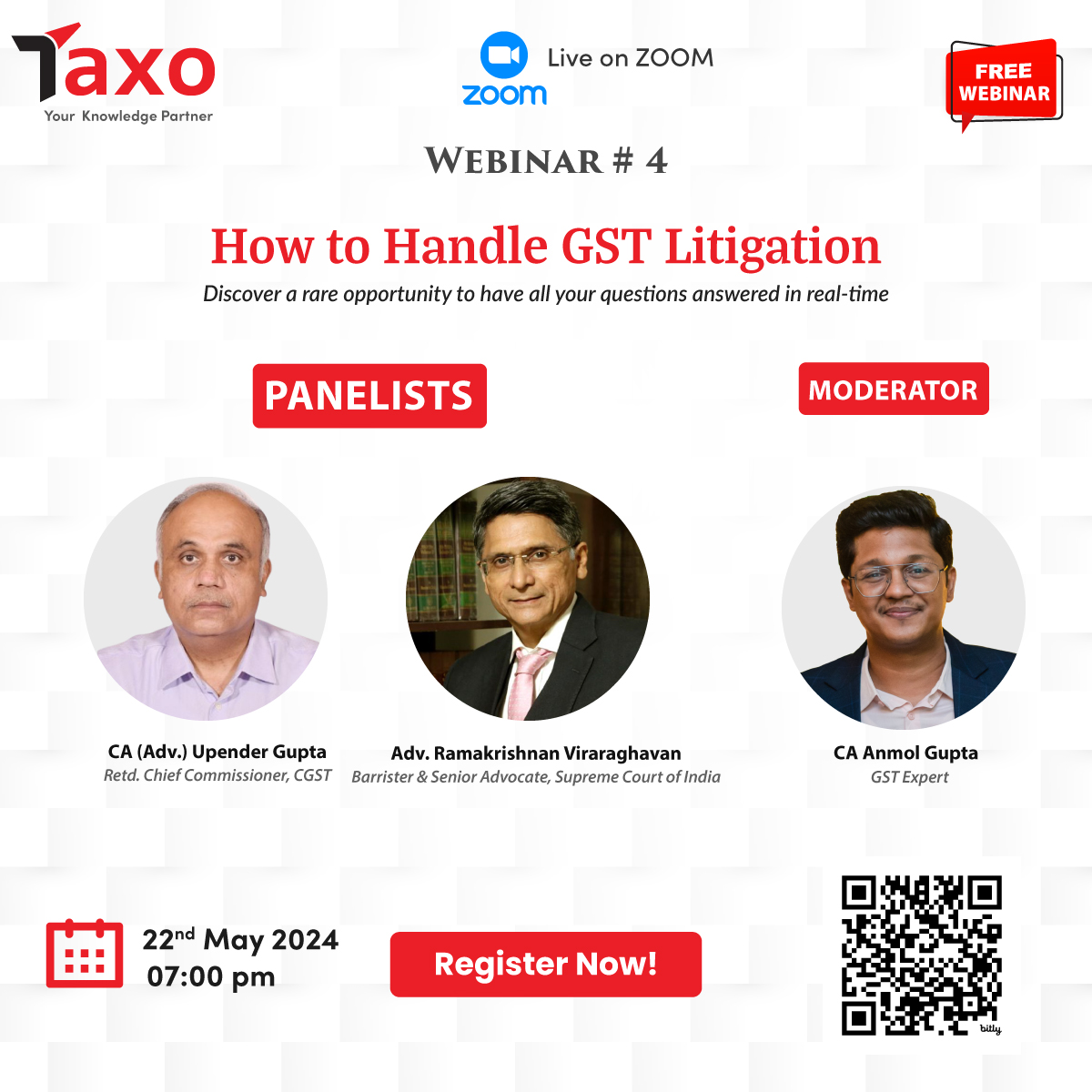In the matter of M/S Dwarikesh Sugar Industries Ltd. cited in [2021] 125 taxmann.com 329 (AAR- UTTAR PRADESH), the applicant is a company incorporated under the Companies Act,2013 and engaged in the business of manufacture and sale of sugar and allied products. The applicant undertakes few activities in order to comply with the Corporate Social Responsibility as per Section 135 of Companies Act.
The applicant reached out to seek advance ruling as to whether expenses incurred by the company as CSR qualify as being incurred in the course of business and eligible for input tax credit or whether CSR activities is restricted under Section 17(5) of CGST Act?
The Advance Ruling Authority paid reliance on varied other case laws and discussed that as per Section 135 of the Companies Act,2013, any company who meets the criteria for CSR is mandatorily required to incur CSR activities and non-compliance of the provisions may lead to business disruption. Therefore, the said CSR Activities are treated as to be incurred “in the course of business”.
On further submitted points by the applicant, the authority observes that “In the course of business” includes all activities which are incidental to the business which are incurred during the course of business. A company is compulsorily required to undertake CSR activities in order to run its business. As a result, they become essential part of the business process as a whole and thus are to be treated to be incurred “in the course of business”. And since these activities are incurred in the course of business, therefore eligible for ITC.
Further as per Section 17(5)(h), input tax credit shall not be eligible in respect of “goods lost, stolen, destroyed written off or disposed of by the way of gift or free samples”.
The applicant supplied furniture/fittings such as tables, chairs etc. and electrical goods to be used in the school under the CSR activity, free of cost. Since we have established that CSR Activities are eligible for ITC, let’s dig deep about the apportionment under section 17.
CSR have been mandated by the law and therefore it is obligatory in nature. Gift is not defined under CGST Act 2017, therefore in common parlance a “gift” is defined as a voluntary transfer of property by one to another. CSR expenses being involuntary and regular in nature cannot be qualified as “gifts”. Another basic essence of gift is that a gift is usually given occasionally and without consideration. In view of the above, a clear distinction between goods given as gift and as a part of the CSR Activities is being drawn and CSR expenses are not to be qualified as gifts and therefore credit is not restricted.
Another observation of the court is that as per the facts stated that input tax credit in general is not available for construction, reconstruction, renovation etc. of an immovable property even when such goods/services or both are being used in the course of the business, however the limitation is to the extent of capitalization, accordingly ITC on the goods/services used for construction of school buildings will not be available to the extent of the amount capitalized.


